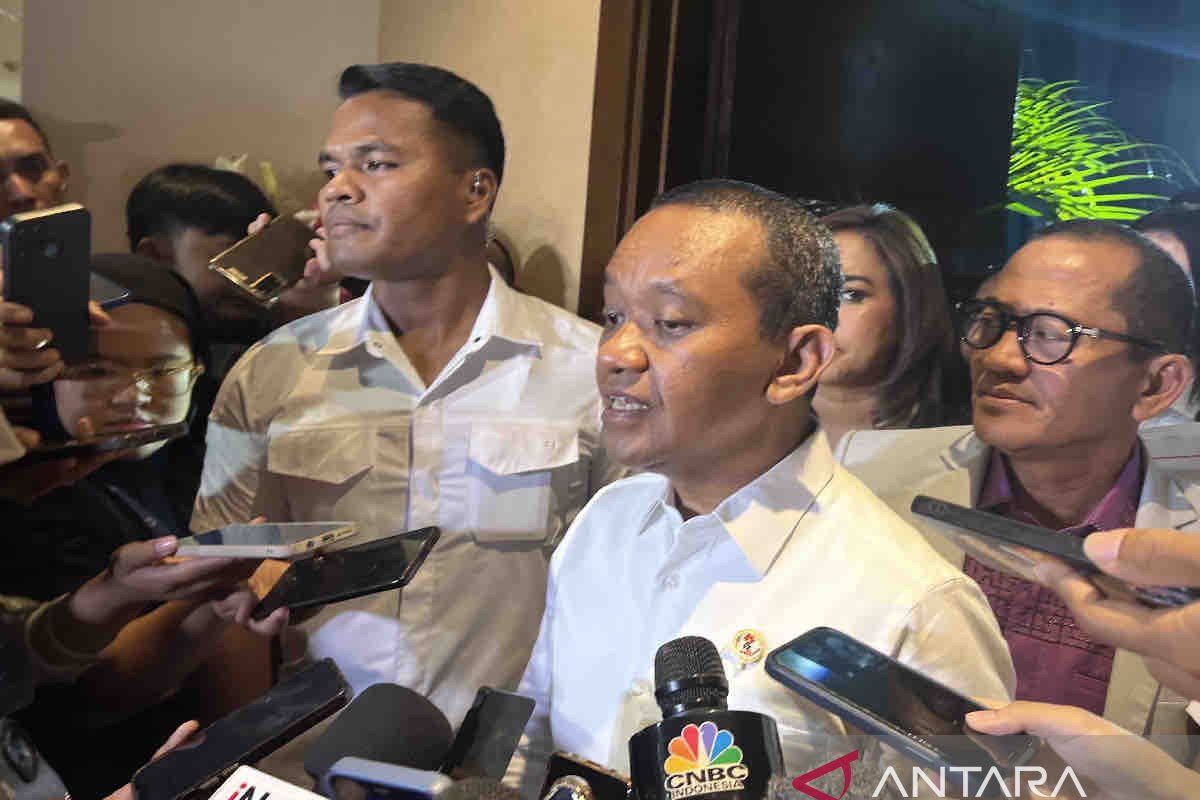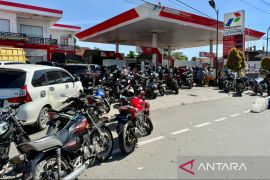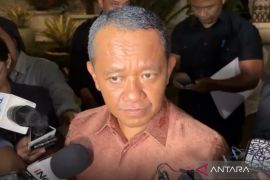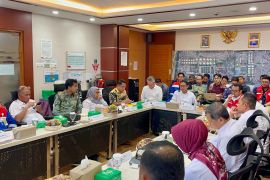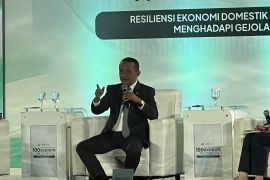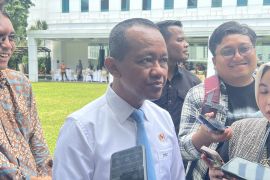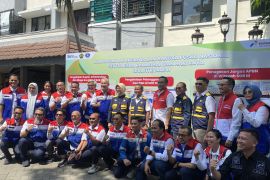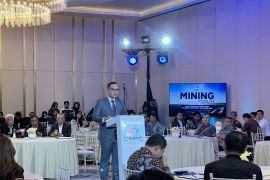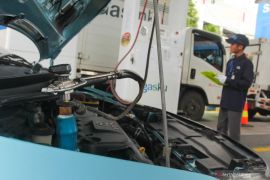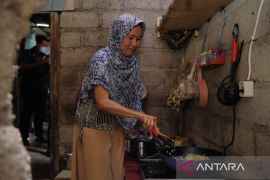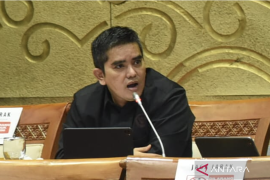Jakarta (ANTARA) - Energy and Mineral Resources Minister Bahlil Lahadalia emphasized the need to develop gas networks to cut Indonesia's reliance on imported liquefied petroleum gas (LPG) and solidify national energy sovereignty.
"We must build gas networks. Otherwise, we will be severely dependent on imports," he remarked during the REPNAS National Conference & Awarding Night in Jakarta on Monday (October 14).
Lahadalia underscored that Indonesia's LPG production capacity is at 1.7 million tons per year while its annual need for such gas has hit eight million tons, thereby necessitating the country to import around 6-7 million tons annually.
In that condition, he underscored the need for the next government to focus on developing a gas industry capable of producing components that can be converted into LPG, such as propane and butane.
"I happen to adhere to a principle of prioritizing sovereignty. We must be able to manage our natural resources independently," he affirmed.
The minister then remarked that gas networks had been built and operating in some regions, such as East Java, West Java, and Central, though he said they had yet to function optimally.
"Why? (It is) because the pipes have not been built. I have asked the Finance Minister (Sri Mulyani) to construct the pipes (and) make them (stretch) like a toll road. That way, we will be able to offer people more gas at more affordable prices," he pointed out.
Lahadalia also stated that the government had been disbursing up to Rp80 trillion (US$5.1 billion) annually in LPG subsidy.
"That is our subsidy. Since 2006-2007, we have not increased gas prices," he highlighted.
Earlier in July, Chairman of the Business Competition Supervisory Commission (KPPU) M. Fanshurullah Asa suggested that the incoming administration for 2024-2029 led by Prabowo Subianto intensify the development of urban gas networks to pursue LPG budget efficiency.
He deemed the presence of such networks as the best solution to save the budget significantly, considering that the government had so far incurred around Rp830 trillion (US$53.3 billion) in total to distribute and subsidize LPG. (INE)
EDITED BY INE
"We must build gas networks. Otherwise, we will be severely dependent on imports," he remarked during the REPNAS National Conference & Awarding Night in Jakarta on Monday (October 14).
Lahadalia underscored that Indonesia's LPG production capacity is at 1.7 million tons per year while its annual need for such gas has hit eight million tons, thereby necessitating the country to import around 6-7 million tons annually.
In that condition, he underscored the need for the next government to focus on developing a gas industry capable of producing components that can be converted into LPG, such as propane and butane.
"I happen to adhere to a principle of prioritizing sovereignty. We must be able to manage our natural resources independently," he affirmed.
The minister then remarked that gas networks had been built and operating in some regions, such as East Java, West Java, and Central, though he said they had yet to function optimally.
"Why? (It is) because the pipes have not been built. I have asked the Finance Minister (Sri Mulyani) to construct the pipes (and) make them (stretch) like a toll road. That way, we will be able to offer people more gas at more affordable prices," he pointed out.
Lahadalia also stated that the government had been disbursing up to Rp80 trillion (US$5.1 billion) annually in LPG subsidy.
"That is our subsidy. Since 2006-2007, we have not increased gas prices," he highlighted.
Earlier in July, Chairman of the Business Competition Supervisory Commission (KPPU) M. Fanshurullah Asa suggested that the incoming administration for 2024-2029 led by Prabowo Subianto intensify the development of urban gas networks to pursue LPG budget efficiency.
He deemed the presence of such networks as the best solution to save the budget significantly, considering that the government had so far incurred around Rp830 trillion (US$53.3 billion) in total to distribute and subsidize LPG. (INE)
EDITED BY INE
Translator: Muhammad H, Tegar Nurfitra
Editor: Rahmad Nasution
Copyright © ANTARA 2024
